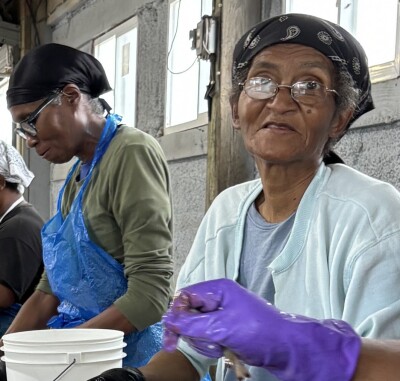Keep it clean
In mid-March my family sat down to a supper of rice pilaf, sautéed green beans and honey-broiled sockeye. My 3-year-old had requested salmon, much to the delight of his parents.
I could not help but think about how lucky we are to get wild salmon in the middle of winter in Maine. And not too long ago, the only way to get salmon anytime was to fish it yourself or reach in the cupboard for a can. That all changed when the Alaska Seafood Marketing Institute began working with salmon processors and fleets to develop a stronger market for fillets of the red-fleshed fish.
Unfortunately for some Alaska fishermen, their perpetual resource is competing with the extraction of nonrenewables. Though Gov. Sean Parnell declared at the International Boston Seafood Show in March that Alaska will not sacrifice one resource for another, he is leading his administration down a different path.
By the time this issue is in your hands, it's very likely that the Environmental Protection Agency will have released its second draft assessment of the proposed copper and gold mine at the headwaters of Bristol Bay — a watershed that hosts the world's largest sockeye run.
Pebble Mine could indeed offer some jobs for several decades. But the result would leave toxic tailings ponds perched over Bristol Bay's salmon bounty. Forever. The phrase "in perpetuity" haunts me, as I'm sure it does many Bristol Bay fishermen and residents. It makes no sense to introduce the likelihood of damaging a potentially eternal source of income and productivity for the opportunity to benefit finitely.
I understand that the mine's proponents believe they can keep the mining byproduct of sulfuric acid secure and separate from the water supply, but that's hard to imagine in an area of marshy, muddy land, where the water systems are connected under soft, permeable soil. Now throw in the fact that the region is in the Ring of Fire, aka, earthquake and tsunami country.
But let's put geography aside and compare this disaster to the Gulf of Mexico oil spill. What if BP went bankrupt today? Who then would be responsible for helping Gulf Coast residents with an ongoing recovery? In these cases we look to the federal government.
So when the state of Alaska declares that they don't want the EPA stepping in and telling them what they can do with their land, I say, "Let the federal government protect its own interests." Alaska is part of this great nation. And when things go south, even Alaska looks to the federal government for help.
Beyond all of these concerns, what will happen to Alaska's reputation for pristine waters? Before there's even a chance for contamination, it will be tarnished by the mere presence of Pebble Mine. And that doesn't just go for Bristol Bay salmon. It means Alaska seafood as a brand, which is so immaculate today that the state hardly needs to consider an ecolabel, will be compromised. It's time for Alaska fishermen at large to stand up and fight for the state's brand. It's your brand. It's your fish. It's your livelihood. Protect it.
In the middle of a huge bite of his sockeye supper, my boy asked, "Why do fishermens catch fish?" His Papa replied, "So you can eat them." Amen. Let's keep it that way.
- Jessica Hathaway






